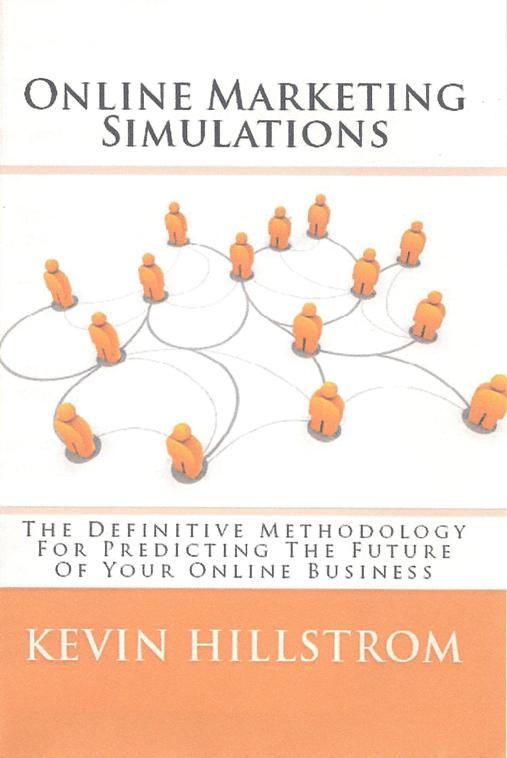About two months into a new fiscal year, the occasional ups and downs in a business begin to average out. You begin to have a good idea whether your year is heading in a positive direction, or if it is starting to become difficult to achieve bonus levels this year.
If you have profit and loss responsibility, your year is at an interesting inflection point. Most of the folks working in our multichannel businesses don't get to see the interplay between executives, especially when sales levels are not meeting expectations.
The merchandise executive feels a lot of pressure. Her merchandise is not selling, and there could be many reasons for this. Maybe the database marketing executive didn't mail the right customers. Maybe the online marketing executive isn't attracting the right traffic to the site. Maybe the brand marketing/creative leader is depicting the merchandise in an unflattering manner. She needs help understanding what is happening in the relationship between her customers, and her merchandise. No focus group of nine individuals, no survey of 3,000 loyal purchasers will provide the insight she needs to make decisions today.
Working with merchants who take accountability for sub-par business results is an absolute blessing.
The inventory executive feels a lot of pressure. He is bonused on outstanding fulfillment, great gross margins, and rapid inventory turn. When the business goes south, he needs to liquidate merchandise quickly. He'll demand additional clearance catalog mailings, increased e-mail frequency, free shipping, 20% off your order, whatever it takes to sell out from under the pile of unwanted garbage the merchants bought. The customer experience becomes secondary to moving merchandise at any cost.
The database marketing executive feels a lot of pressure. She is often the first person to be blamed for sub-par business results. It is so easy to assume that the wrong customers were mailed catalogs, that the e-mail campaigns were not actually delivered to the customer, that the post office forgot to deliver 200,000 catalogs, that the techno-geeks who forecast sales made big mistakes. It is hard for executives to accept the fact that customers didn't want to purchase our merchandise. This is the time of year that the database marketing executive starts trying to craft a story about customer behavior --- a story that doesn't offend folks, but adequately gets her off the accountability hook.
The finance executive feels a lot of pressure. He knows that additional mailings, online advertising, price reductions, shipping promotions and any of a number of additional incentives will cause expenses to not leverage well against sales. He'll demand that the database marketing executive re-forecast the customer file, and re-forecast sales for the remainder of the year. The board/owner will need to know the expected profit impact of the sales implosion. The finance executive will take more heat from the board/owner than is deserved.
The brand marketing/creative executive feels a lot of pressure. She is trying so hard to provide an outstanding experience for the customer. She reads a dozen blogs that preach the critical importance of "managing the brand". She reads another dozen blogs that constantly harp on how brands fail to treat customers well, marketing blogs that take repeated potshots at companies for failing to meet customer expectations. Then she looks at her business peers, who are about to trample the customer experience to move merchandise at any cost.
How does she convince them that this is bad for the business?
Worse, how does she provide a viable alternative for clearing $10,000,000 of overstocked merchandise, one that doesn't trample the customer experience? Do any of the marketing bloggers have a credible, creative solution to this problem? How about the vendor community?
This is a key element of profit and loss responsibility that vendors, bloggers and pundits fail to appreciate. There is tremendous pressure to bail out the profit and loss statement, tremendous pressure to get out from under yesterday's poor merchandising decisions today, tremendous pressure to save one's job. Few of the options (discounts, promotions, price cuts, free shipping, additional mailings, additional e-mail contacts, you name it) are good for the long-term customer experience or are good for "the brand". Comments like 'the brand should have offered great merchandise that the customers wanted to buy in the first place' fail to solve the problems the executive has to navigate through today.
Without viable alternatives, the brand marketing/creative executive is in a no-win situation. You can see why the average Chief Marketing Officer lasts 23 months --- no viable short-term solutions to move overstocked product, no way to protect the customer from the impending onslaught of advertising of crappy merchandise, no way to truly succeed in her job.
The operations executive is nervous, because a continued downturn in business results in staffing cuts in the phone center and distribution center. Who wants to go through that experience?
The human resources executive deals with secondary issues created by stress. Employees begin snipping at each other. Some employees quit, heading instead for the lucrative surroundings of a successful business. HR is not a fun place to be during a downturn.
The information technology executive is nervous, because the executive team is demanding that website improvements be completed now, to improve business. The executive team also is demanding business intelligence solutions from information technology folks --- the executives want to know why customers aren't purchasing, and cannot articulate questions in a way that an information technology executive can effectively program into a report.
Profit and loss responsibility changes the way one thinks about a business.
When business exceeds expectations, it is easy to think about theoretical issues like return on customer, providing an exceptional customer experience, enhancing the "brand", developing new business opportunities, figuring out how to grow to three billion dollars in sales, giving customers a say in advertising, developing a CEO blog, you name it.
But when the business fails to meet expectations, all that fun stuff goes out the window. One bad year costs the executive her bonus. Two bad years costs the executive her job. Short-term decisions are made to save the profit and loss statement, to buy another six months of time to acquire new merchandise that the customer might want to purchase.
And when the company is publicly traded, all of these issues are magnified by shareholders demanding a return on investment today. Most of you reading this blog are indirect shareholders --- you have 401k accounts, and you're not patient when your 401k account loses value, are you? You indirectly contribute to the problems you openly grumble about.
One can see how special visionary leaders are --- the rare individual who can keep an eye on strategic, visionary issues, while navigating choppy waters every-other or every-third year.
Today's online marketing executives have not gone through a lot of these business cycles. The online channel has pointed straight up for a decade. It's only a matter of time before the pressures all executives feel are thrust upon our new generation of online marketing executives.Labels: Bloggers, CMO, Database Marketing, Executives, Finance, Human Resources, Information Technology, Inventory Management, Leadership, Merchants, Profit and Loss, Pundits


